Min-Sik introduced FAILAN as a film where he is not playing up dark aspects of his character’s personality. After the film, recent NYAFF mc Bastard Keith spoke to the actor, beginning by discussing his personal experience discovering his films. Regarding FAILAN, Min-Sik discussed the extreme cold of the setting, something that he was transported back to while rewatching the film (that’s right, far from a detached celebrity, Min-Sik watched the film right along with the audience), and the challenges it posed to costar Cecilia Cheung. He also described how he lived the life of the character, Kang-jae, to prepare for the heart wrenching role. In fact, before and during work on a movie, he forces himself to embody the character he is portraying, something he likened to putting himself in a trance. He described the problems this has caused in his life, like when unsavory aspects of some of these personalities, particularly the serial killer in I SAW THE DEVIL, have caused him to lash out against unsuspecting bystanders. Min-Sik spoke more about that more recent role’s damaging effects. So strong was its hold on him that he said he sensed the smell of actual blood, leading to extreme bouts of nausea, as buckets of the fake stuff were splattered around him.
Choi was also asked about his inactivity from around 2005 - 2010, during which time he actively spoke out against pressures to abandon a national screen quota system. The quota system would limit screenings of movies from the United States. while in turn Allows domestic films to be shown in theaters for a minimum amount of time. He explained the importance of this issue to himself, as the quota system would make sure artists such as Kim Ki-Duk and Sang-soo Hong had a chance to have their work shown in theaters that would otherwise be running their operations like a profit-seeking business. As the government would reject his views and end up caving in to pressures to reduce its quota system, Min-Sik eventually returned to the dearly missed craft of acting.
Hours later Min-Sik would return to greet a warm audience and introduce the final film in the series on his work, CRYING FIST. He spoke about the film being based on the struggles of real life individuals, adapted to the screen with some fictional elements added. His character was based on a former Japanese boxer, Hareruya Akira, whose story earning money in central Shinjuku to pay off a large debt fascinated Min-Sik. During both the introduction and Q & A, Min-Sik described putting himself through a few weeks of rigorous training with an actual high school boxing team in Seoul, and how taxing this exercise was on him physically and mentally. When asked about methods employed to play such intensely emotional and often physically violent characters, Min-Sik discounted the embrace of any one particular method, as long as he inhabited his characters’ lives in order to prepare for a film.
The evening’s mc, Samuel Jamier (programmer of Japan Cuts and this year’s New York Asian Film Festival) also asked Choi Min-Sik about his time spent away from acting in protest of pressure to stop the Korean film quota system. He answered from a different perspective than before giving a totally different and equally enlightening insight into the situation. This time, he explained that while he was not technically working during the time of protesting against the Korean government, he was expressing his point of view and feeling without holding back. He described his feelings, views, and experiences as his most important instrument in being an actor, and his decision to embrace all of these feelings and experiences -- happy or negative -- help him to focus his craft. He expressed no regrets in using his status to fight against what he considered an unjust policy, and feels the experience gave him a chance to reflect on himself and come back to acting with an even stronger passion than before. (This period of protest came before his roles in I SAW THE DEVIL and NAMELESS GANGSTER, so indeed he has returned with as much intensity as ever.)
There is little doubt that those unfamiliar with Choi Min-Sik before the screenings became fans, and those who already knew his films left with an even stronger appreciation of his work. With so much to discuss about his existing body of work, there was little attention directed at his future activity. It is a future to keep our eyes locked on the path of this very special figure in the world of film.
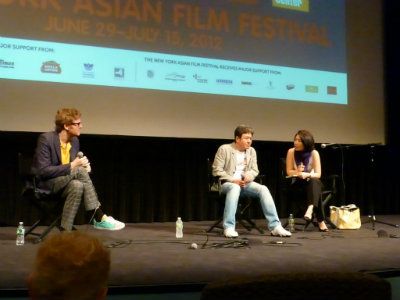
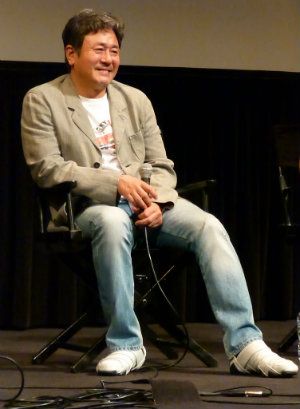
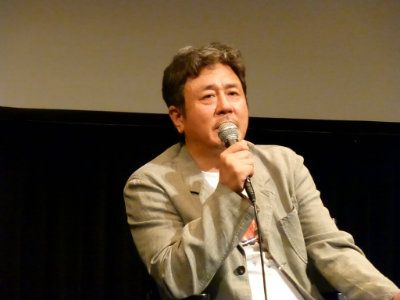
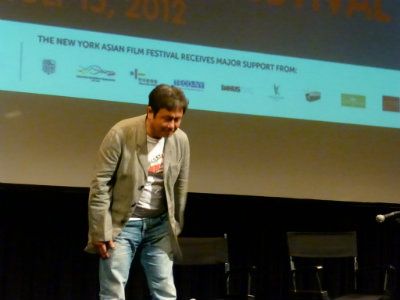
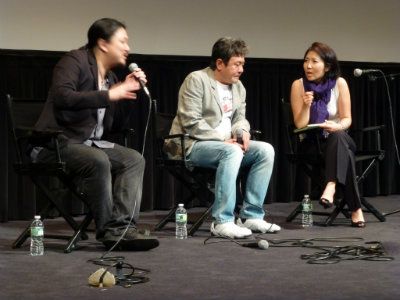
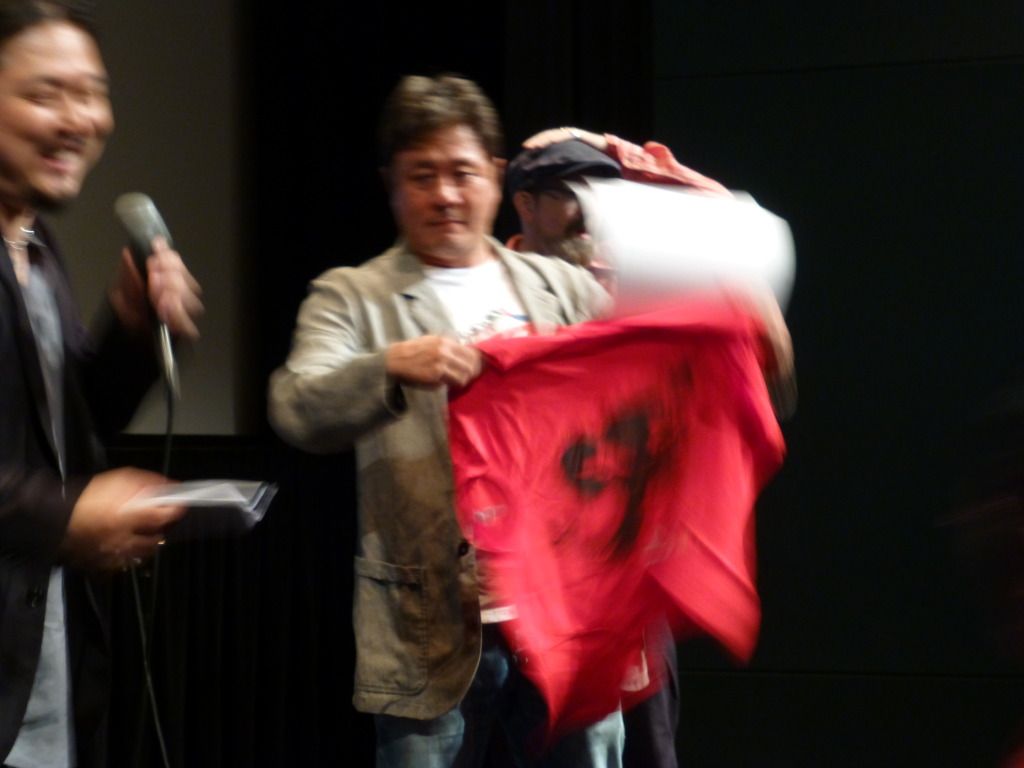
Me on twitter = @mondocurry
No comments:
Post a Comment